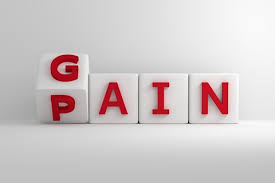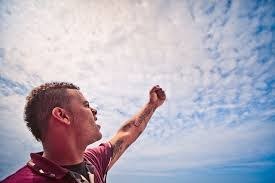Deathless

Odd that the Torah-portion about the death of Yaakov Avinu is called “Vayechi.” After all, the word means “And he lived.” And, differently voweled, the word can mean “And he will live.” And especially odd, because Yaakov didn’t die.
At least that’s what Rabbi Yochanan (Taanis, 5b) asserts, although his listeners asked sarcastically, “Was it then for naught that the eulogizers eulogized him, the embalmers embalmed him and the gravediggers buried him?”
Unperturbed, Rabbi Yochanan responded with the prophet Yirmiyahu’s assurance, “And you, fear not, my servant Yaakov, says Hashem, and tremble not, Yisrael. For behold I am your savior from afar and [that of] your descendants from their land of captivity.” That verse, explained Rabbi Yochanan, juxtaposes Yaakov with his descendants. And so, the sage concluded, “just as those descendants are alive, so, too, must he be.”
As abstruse Talmudic passages go, this one would seem a good example. Rabbi Yochanan’s proof is as unconvincing as his contention was bewildering. And yet, the traditional word for dying (vayomos) is strangely absent from the account of Yaakov’s… whatever. Instead, an unusual and somewhat vague word (vayigva) is employed. And there are Midrashic narratives, too, that imply Yaakov’s life after life.
What is more, the concept that Jewish tradition associates with the third of our forefathers is emes, or “truth.” The Rambam (Hilchos Yesodei HaTorah 1:3-4), albeit in a different context, explains emes as meaning, essentially, “permanence”. Another indication that Yaakov, in some way, has transcended demise.
And, even with his embalming and burial, he has. For while his parents and their parents – Yitzchak and Rivka, and Avrohom and Sarah – bore children who proved unworthy of being progenitors of the Jewish people, only Yaakov and his wives merited seeing all of their offspring become forbears of the nation.
And so, in a very real way, Yaakov didn’t die; he metamorphosed into Yisrael, into the Jewish people. Which, when one thinks about it, may be precisely what Rabbi Yochanan was saying. His proof of Yaakov’s eternalness, after all, lies in a comparison between the man and his progeny. Perhaps it is more than a comparison. Yaakov becomes the Jewish people; he is Klal Yisrael, and that is why he is deathless.
That Yaakov would sire the first exclusively Jewish family was heralded in his famous dream, of which we read several weeks ago. There too, as in Yirmiyahu, Yaakov is juxtaposed with his descendants. “To you shall I give [the Holy Land], and to your children.” And: “All the families of the earth will be blessed through you, and through your children.”
Sometimes a thought can only be thought, or an observation observed, after a certain point in history. A possible example has to do with the realization of the import of Yaakov becoming Yisrael – and the dream he dreamt after he left Be’er Sheva and set out on his journey to Charan.
Because the dream-image that accompanied that Divine message about his future was a connection between heaven and earth in the form of a sulam, or “ladder.”
“Sulam” occurs only this once in the Torah, and its etymology is unclear. But an Arabic cognate of the word refers to steps ascending a mountain. The easiest way to ascend a mountain is a spiral path. That fact, and the possibly related Aramaic word “mesalsel” – to twist into curls – might lead one to imagine Yaakov’s “ladder” as something more akin to a spiral staircase.
It is a poignant image.
For, beginning with Yaakov, Jewishness is finally bestowed by genealogy.
And a spiral ladder is what one might more technically call a double helix, a fitting vision to presage the destiny of the man who dreamed it.
© 2013 Rabbi Avi Shafran
rabbiavishafran.com
[email protected]




Recent Comments